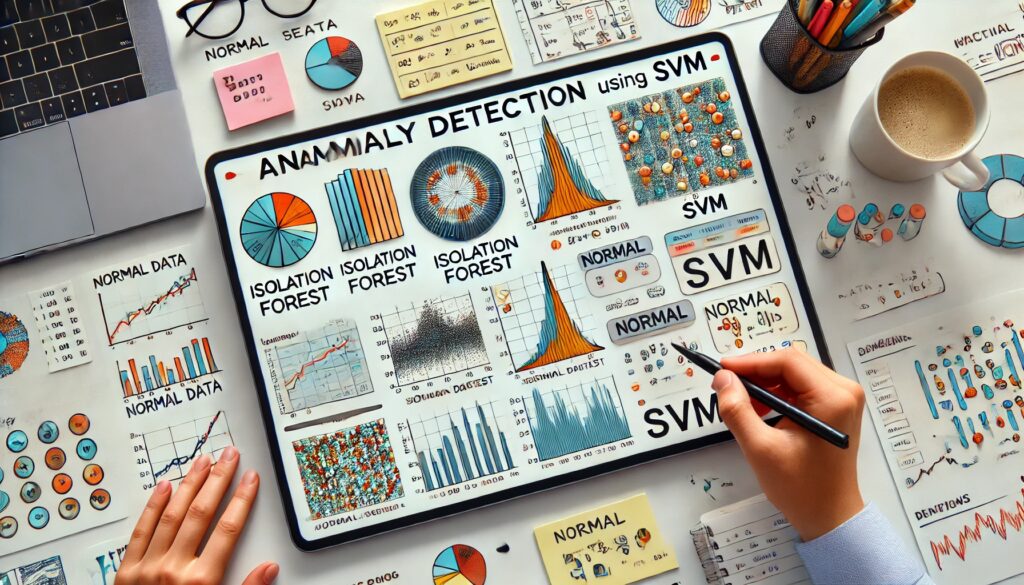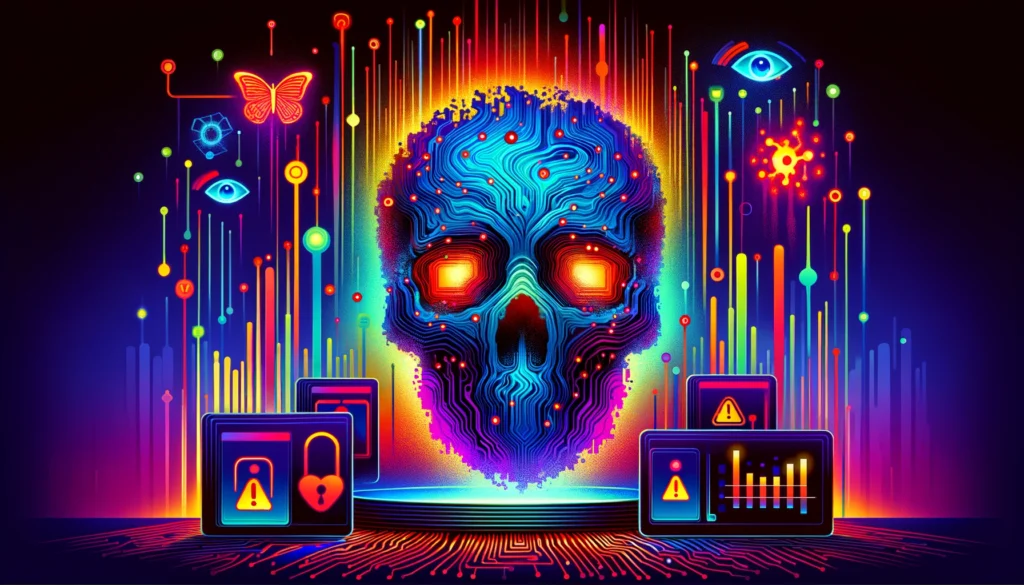
Exploring the Future of Scientific Discovery
Enter the concept of the AI Scientist—an advanced AI system designed to independently conduct scientific research, generating hypotheses, designing experiments, and even discovering new scientific principles without human intervention. This groundbreaking concept could redefine the future of science and innovation, pushing the boundaries of what is currently possible.
What is an AI Scientist?
An AI scientist is not just another data processor or algorithm follower. It represents the pinnacle of AI development: a system that can autonomously generate hypotheses, design experiments, and derive new scientific principles. The vision behind this concept is to create an AI capable of true scientific discovery, mimicking the curiosity and ingenuity of human researchers but with the added power of machine precision and speed.
Autonomous Hypothesis Generation
At the heart of the AI scientist is its ability to generate hypotheses on its own. This capability means that the AI can understand current scientific knowledge, identify gaps or unexplored areas, and formulate new questions or theories that could lead to significant discoveries. This process involves a deep analysis of existing data and literature, allowing the AI to pinpoint where new insights could be found.
Experiment Design and Execution
Once a hypothesis is generated, the next step for an AI scientist is to design and execute experiments to test these hypotheses. This could involve creating new machine learning models, running simulations, or even conducting physical experiments in controlled environments. The AI can then analyze the results, iterating on its approach to either validate or refute the initial hypothesis.
Advanced Data Analysis
A crucial aspect of the AI scientist is its ability to perform sophisticated data analysis. It can identify patterns, detect anomalies, and extract insights that might not be immediately obvious to human researchers. This level of analysis can significantly speed up the research process, allowing for faster validation of hypotheses and quicker progression to new questions.
Learning and Adaptation
One of the most exciting features of an AI scientist is its ability to learn and adapt from its experiments. As it conducts research, the AI continually refines its methods and understanding, improving its accuracy and efficiency over time. This capability ensures that the AI becomes more proficient and innovative with each experiment, potentially leading to breakthroughs that might take human scientists much longer to achieve.
Discovery of New Algorithms
The most groundbreaking aspect of an AI scientist is its potential to discover entirely new algorithms or approaches to machine learning. Such innovations could revolutionize the field, leading to advancements that human researchers have not yet conceived. This could open up new avenues of research, driving progress in ways that were previously unimaginable.
Ethical and Philosophical Implications
The development of an AI scientist raises significant ethical and philosophical questions. For instance, who owns the discoveries made by the AI? How do we ensure that the AI’s work aligns with human values and ethical standards? Moreover, there is the possibility that the AI could make discoveries so complex that they are beyond human understanding, raising concerns about transparency and control.
Can AI Scientists Replace Human Researchers?
The Strengths of AI Scientists
AI scientists bring several significant advantages to the table. Their ability to process vast amounts of data, identify subtle patterns, and conduct experiments at a speed and scale far beyond human capabilities is unmatched. They can work around the clock without fatigue, making continuous progress in areas where human researchers might be limited by time, resources, or cognitive constraints.
One of the most promising aspects of AI scientists is their potential to generate entirely new algorithms or scientific principles that human researchers might not have conceived. This could lead to breakthroughs in machine learning, drug discovery, and other scientific fields, propelling innovation forward at an accelerated pace.
The Limitations of AI Scientists
Despite their strengths, AI scientists face significant limitations that currently prevent them from fully replacing human researchers. One of the key challenges is creativity. While AI can generate hypotheses based on existing data, it lacks the intuitive leap and out-of-the-box thinking that often characterize groundbreaking human discoveries. Creativity in science is not just about following patterns; it’s about making connections that are not immediately obvious—something that AI still struggles to achieve.
Understanding and interpretation also pose challenges for AI scientists. Even when an AI system makes a discovery, explaining the findings in a way that humans can understand and validate remains difficult. Scientific research is not just about producing results; it’s also about communicating those results clearly and persuasively to the scientific community and the broader public.
The Human Element in Research
Science is deeply intertwined with human curiosity, ethics, and values. Researchers are driven not just by the desire to discover new things but by a passion to understand the world and improve it for future generations. This human element is something that AI cannot replicate. The decision-making process in research often involves ethical considerations, where human judgment is crucial. AI lacks the ability to weigh moral dilemmas and consider the broader implications of scientific discoveries in the way humans do.
Moreover, collaboration is a fundamental aspect of scientific research. Human researchers work in teams, sharing ideas, challenging each other’s assumptions, and building on each other’s work. This collaborative environment fosters creativity and innovation. While AI can assist in research, it cannot replicate the dynamic exchange of ideas that occurs in human collaboration.
The Role of AI as an Enhancement Tool
Rather than replacing human researchers, AI scientists are more likely to serve as powerful enhancement tools. They can assist researchers by automating routine tasks, processing large datasets, and providing new insights that might have been overlooked. By handling the more tedious and time-consuming aspects of research, AI can free up human researchers to focus on more creative and strategic aspects of their work.
In this symbiotic relationship, human researchers can guide AI systems, setting the objectives and providing the contextual understanding that AI lacks. This partnership could lead to a more efficient and innovative research process, where AI and humans complement each other’s strengths.
Ethical Considerations
The prospect of AI scientists taking on a more significant role in research also raises important ethical questions. Who is responsible for the discoveries made by AI? How do we ensure that AI-driven research aligns with human values and societal needs? These questions highlight the importance of establishing clear guidelines and governance structures to oversee the integration of AI into the research process.
Moreover, there is a need to address the potential impact on jobs in the scientific community. If AI systems take on more responsibilities, what does that mean for human researchers? Ensuring that AI serves as a complement to human efforts, rather than a replacement, is crucial for maintaining a healthy and dynamic research environment.
The Future of Research: Collaboration Over Replacement
In conclusion, while AI scientists have the potential to revolutionize scientific research, they are unlikely to fully replace human researchers. The most promising future lies in a collaborative approach, where AI enhances human capabilities, allowing researchers to explore new frontiers and make discoveries faster and more efficiently.
AI scientists can take on the heavy lifting in data processing and hypothesis generation, but the human touch—creativity, ethical judgment, and collaboration—will remain indispensable in the scientific process. As we continue to develop these advanced AI systems, it is essential to remember that they are tools created to serve humanity, not to supplant the very essence of what makes us human: our curiosity, creativity, and compassion.
Here are some resources for further exploration on the topic of AI scientists and their impact on research:
- How AI is Changing the Research Landscape
This article from Nature discusses the various ways AI is transforming scientific research, from automating data analysis to generating new hypotheses. - Automated Machine Learning and Its Impact on Research
- A comprehensive look at AutoML and how it’s paving the way for more autonomous AI systems in the research field.





